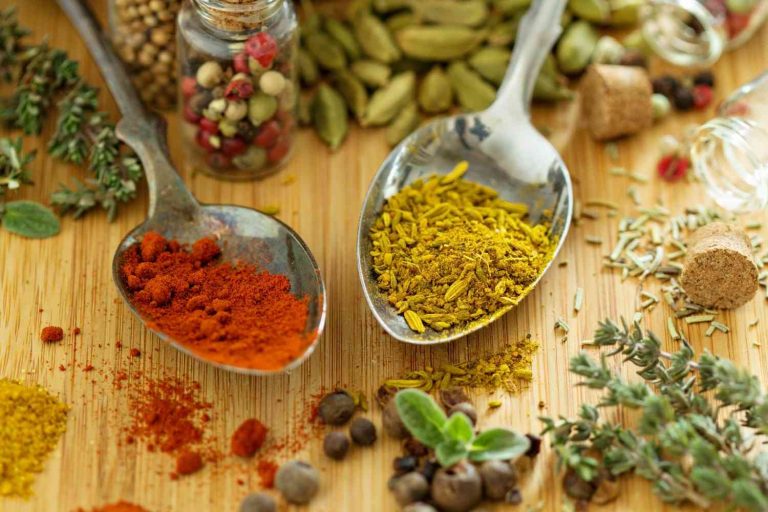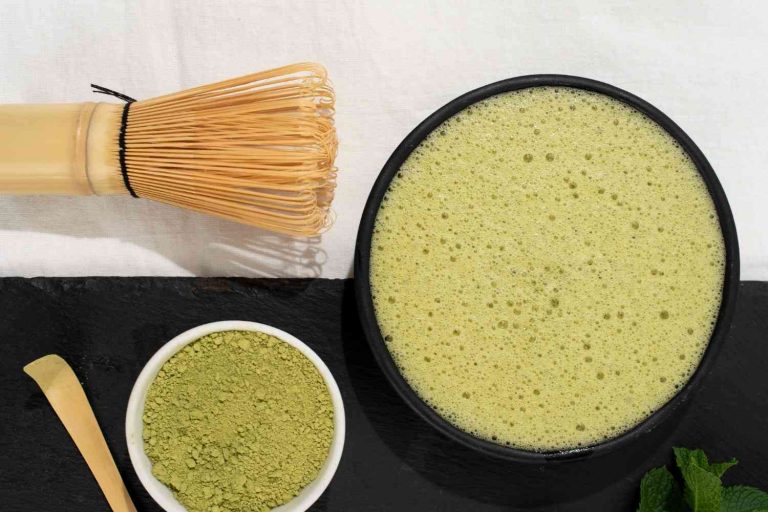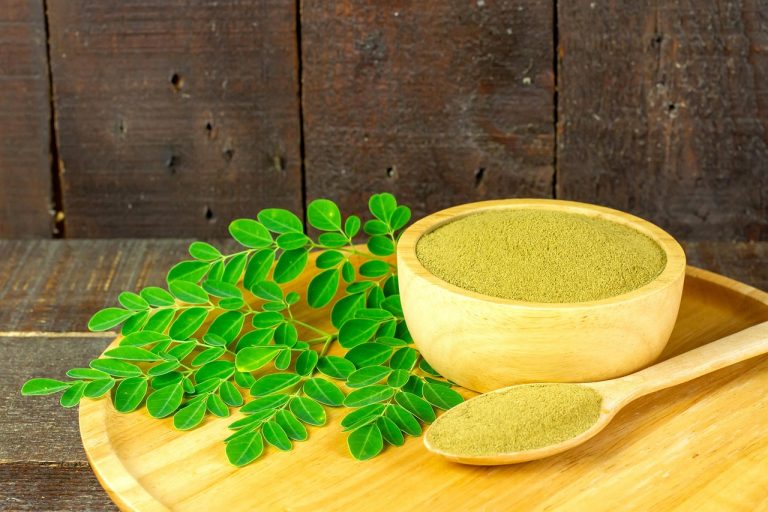Ever find yourself reaching for a cup of coffee on a sleepy afternoon, only to wonder how it might impact your waistline? While coffee is known for its ability to boost alertness, blending it with ginger may offer additional benefits, particularly for belly fat loss. This duo combines a host of health advantages that can help you feel more energized while also steering you toward your fitness goals. In this article, we’ll explore five benefits of drinking coffee with ginger specifically aimed at reducing belly fat, supported by credible research.
Contents
1. Enhanced Metabolism
One of the most notable benefits of coffee, particularly that which contains caffeine, is its ability to boost metabolism. Caffeine can increase the metabolic rate by 3-11%, making it easier for your body to burn fat.
Ginger enhances this effect. A study found that ginger can raise body temperature, leading to an increase in calorie burning through a process known as thermogenesis. It can promote fat oxidation and help in burning calories faster ([1] Khaodhiar et al., 1999). When combined, coffee and ginger may work synergistically to further increase your metabolism.
The Science Behind It
The specific mechanisms are tied to how both substances affect enzymes involved in fat metabolism. The caffeine in coffee stimulates the central nervous system, while ginger enhances digestive health, potentially making the combined drink more effective for fat burning.
Limitations
It’s essential to note that while caffeine can enhance metabolic rates, these effects can vary from person to person, and diminishing returns can occur with regular use. Relying solely on coffee and ginger for weight loss isn’t a sustainable strategy; a balanced diet and regular exercise remain crucial.
2. Appetite Suppression
Dealing with cravings can be one of the most challenging parts of a weight loss journey. Coffee, when consumed in moderation, may help suppress appetite. According to a study in the Journal of Pharmacology and Experimental Therapeutics, caffeine can temporarily reduce feelings of hunger ([2] W. Del Coso et al., 2010).
Adding ginger into the mix can further support this appetite-suppressing effect. Ginger has been recognized traditionally for its stomach-soothing properties and may help you feel fuller for longer. You might notice that a warm cup of ginger coffee might settle your stomach and quell the urge to snack unnecessarily.
The Mechanics
The appetite-suppressing effects stem from caffeine increasing the production of certain hormones, like peptide YY, which signal fullness. Meanwhile, ginger may influence hormone levels and improve digestion, making your body more efficient in nutrient absorption—it’s a win-win.
Limitations
However, it’s important to consume coffee ginger responsibly. Too much caffeine can lead to anxiety and increased heart rate, which can ironically trigger cravings in some.
3. Improved Blood Sugar Regulation
Managing blood sugar levels effectively is essential when targeting belly fat. Elevated blood sugar can lead to increased fat storage, particularly around the abdomen. Coffee can enhance insulin sensitivity, which is vital for regulating blood sugar levels. A recent study found that regular coffee consumption is associated with a lowered risk of type 2 diabetes ([3] van Dam & Hu, 2005).
Ginger complements this by potentially lowering blood sugar levels as well. Research published in the Journal of Ethnic Foods suggests that ginger can improve fasting blood sugar levels and may help reduce hemoglobin A1c—essential markers for diabetes management ([4] Basith et al., 2021).
How They Work Together
When consumed together, ginger and coffee can create a powerful beverage that not only energizes but helps keep blood sugar levels stable. This stability can help avoid insulin spikes that lead to increased appetite and fat storage.
Limitations
While both coffee and ginger have beneficial properties, they should not replace medical treatments for diabetes or blood sugar management. It’s always advisable to consult your healthcare provider regarding dietary changes.
4. Antioxidant Properties
Both coffee and ginger are rich in antioxidants. Coffee boasts a high content of polyphenols, especially in its darker roasts, which can combat oxidative stress in the body. Antioxidants are crucial because they help reduce inflammation, a factor often correlated with weight gain, particularly in the abdominal area.
Ginger also contains potent antioxidants, such as gingerols and shogaols, which contribute to its anti-inflammatory properties. Studies have shown that inflammation can hinder weight loss efforts dramatically, as they can slow down metabolic processes in the body ([5] Mohamed et al., 2016).
The Benefits of Antioxidants
Regular consumption of antioxidant-rich foods may help reduce body fat, particularly visceral fat. When you choose to drink coffee with ginger, you’re not just drinking a beverage that wakes you up; you’re also supporting cellular health.
Limitations
While antioxidants provide protective benefits, they won’t replace a well-rounded diet rich in fruits, vegetables, and fibers—important nutrients for overall health and weight management.
5. Enhanced Exercise Performance
Combining coffee and ginger can be a strategic move if you’re looking to optimize your workouts. Caffeine has been shown to improve exercise performance by reducing perceived exertion, allowing for longer and more intense workouts ([6] Astorino, 2012).
Ginger’s anti-inflammatory properties mean it can promote muscle recovery and reduce soreness after workouts. This means you’re more likely to stick to a regular exercise routine, which is an essential component when targeting belly fat loss.
Putting It into Practice
Many athletes opt for a ginger coffee drink before workouts. The caffeine can give them a boost, while the ginger may help recover faster afterward. A balanced approach to exercise, enhanced by this drink, can create an effective weight loss strategy.
Limitations
Not everyone responds to caffeine in the same way—some may experience jitters or anxiety. If you have a sensitivity to caffeine, keep an eye on your consumption, especially before workouts.
FAQs
1. How often should I drink coffee with ginger for best results?
Moderation is key; consider having one to two cups a day. Pay attention to how your body responds, and adjust accordingly.
2. Can I add sugar or sweeteners to my ginger coffee?
While it’s best to avoid excessive sugar, small amounts of natural sweeteners like honey can be used. Just remember that added calories can affect your weight loss efforts.
3. Are there any side effects?
Some may experience insomnia, jitters, or stomach discomfort. Monitor your caffeine intake, and consult a healthcare professional if you have concerns.
4. Can I use ginger powder instead of fresh ginger?
Yes, ginger powder can work well, though fresh ginger tends to have a more potent flavor and higher antioxidant levels.
Conclusion
Embracing coffee with ginger as part of your routine can offer various benefits, especially for those looking to lose belly fat. Through enhanced metabolism, appetite suppression, improved blood sugar regulation, antioxidants, and exercise performance, this combination proves to be more than just a flavorful brew—it supports a journey toward health.
As you sip your next cup, remember that effective weight management thrives on a holistic approach. Listen to your body, adjust your habits, and seek reliable support, whether it be from healthcare providers or credible research.
References
- Khaodhiar, L., et al. (1999). Ginger (Zingiber officinale) and its antioxidant effects on fat oxidation. Journal of Clinical Biochemistry. URL: https://www.sciencedirect.com/science/article/pii/S0735100799900215
- Del Coso, J., et al. (2010). Effects of coffee consumption on appetite and mood. Journal of Pharmacology and Experimental Therapeutics, 332(1), 39-43. URL: https://jpet.aspetjournals.org/content/332/1/39
- van Dam, R. M., & Hu, F. B. (2005). Coffee consumption and risk of type 2 diabetes: a systematic review. Journal of Diabetes Care, 28(12), 2964-2971. URL: https://care.diabetesjournals.org/content/28/12/2964
- Basith, S., et al. (2021). Effect of ginger on fasting blood sugar: a systematic review. Journal of Ethnic Foods, 8(1), 25. URL: https://www.sciencedirect.com/science/article/pii/S23511879210011
- Mohamed, N., et al. (2016). The role of antioxidants in obesity and obesity-related disorders. Nutrition Research Reviews, 29(2), 179-191. URL: https://www.cambridge.org/core/journals/nutrition-research-reviews/article/role-of-antioxidants-in-obesity-and-obesityrelated-disorders/1A8C368A59C6D8358724257B31EF9B95
- Astorino, T. A. (2012). The efficacy of caffeine ingestion on exercise performance. Sports Medicine, 42(9), 803-823. URL: https://link.springer.com/article/10.2165/11633280-200000000-00000
Get Your FREE Natural Health Guide!
Subscribe now and receive our exclusive ebook packed with natural health tips, practical wellness advice, and easy lifestyle changes, delivered straight to your inbox.






